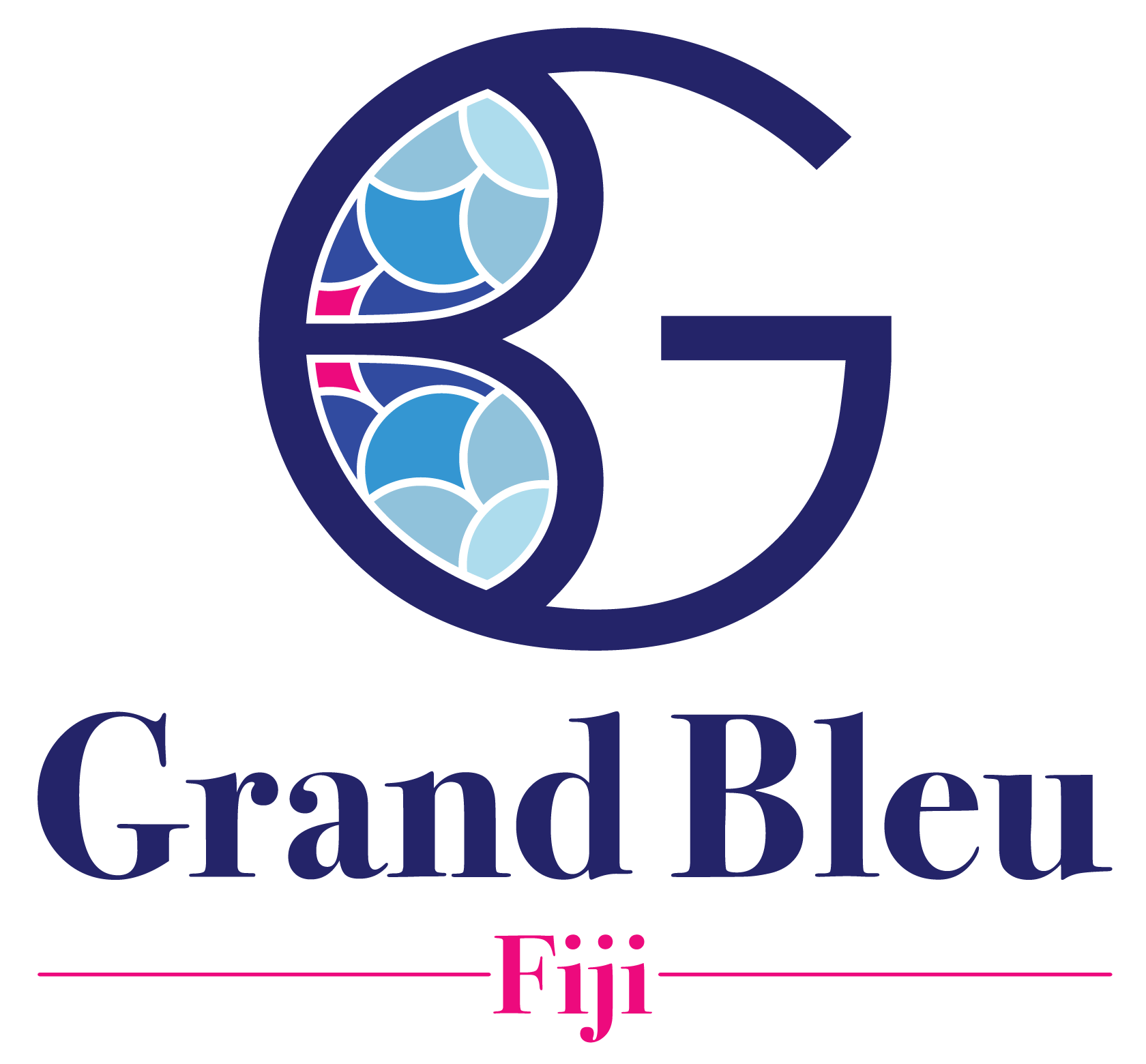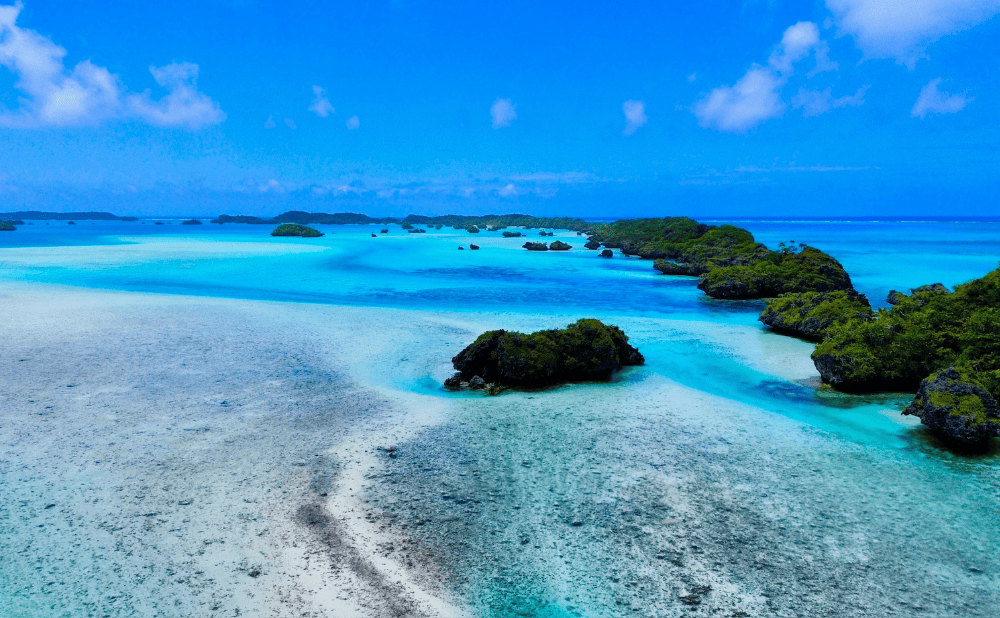There’s something magical that happens when you step aboard Grand Bleu and feel that first gentle rock of the boat beneath your feet. Your shoulders drop. Your breathing deepens. And for the first time in months, maybe years, your mind begins to quiet.
This isn’t just poetic imagery. There’s genuine science behind why the ocean has such a profound effect on our wellbeing, and why our sailing experiences in Fiji’s pristine waters offer something that no wellness retreat on land can match.
The Science of Blue Mind
Marine biologist Dr. Wallace J. Nichols coined the term “Blue Mind” to describe the meditative state we enter when we’re near, in, on, or under water. His research reveals that proximity to water triggers a mild meditative state characterised by calm, peacefulness, happiness, and general satisfaction with life in the moment.
But it goes deeper than that. Studies have shown that blue spaces like the ocean reduce cortisol levels, lower blood pressure, and activate the parasympathetic nervous system, which is responsible for rest and restoration. When you’re sailing through the crystal-clear waters around the Yasawa Islands, your brain is literally shifting into a different state of consciousness.
The rhythmic sound of waves against the hull creates what researchers call “pink noise,” a natural sound frequency that has been proven to improve sleep quality and enhance cognitive performance. It’s why so many guests tell us they sleep better on Grand Bleu than they have in years.
Mindfulness Naturally Unfolds at Sea
One of the beautiful things about sailing is that mindfulness isn’t something you have to force. It happens organically.
When we adjust the sails and you feel the boat respond to the wind, you’re automatically present in that moment. When we point out a pod of dolphins playing in our wake, your attention is completely absorbed by the sight. When you’re snorkeling in a coral garden, breathing becomes a conscious act as you move through this underwater world.
We’ve designed our sailing experiences to amplify these natural moments of mindfulness. Morning yoga sessions on deck as the sun rises over the horizon. Evening reflections while watching the stars emerge in some of the clearest skies on Earth. Meditation moments during our quiet sailing periods when the only sounds are wind and water.
But perhaps most importantly, we create space for what mindfulness teachers call “informal practice.” These are the unstructured moments when awareness naturally emerges: feeling the warmth of the sun on your skin as you read on deck, tasting the incredible freshness of fish caught just hours earlier, or simply sitting in comfortable silence with your loved ones as we anchor in a secluded bay.
When Disconnection Becomes Connection
Here’s what happens when you put your devices away and step into this blue space: your senses wake up.
Without the constant digital chatter, you start to notice things you’ve been missing. The water isn’t just blue; it’s a spectrum of turquoise, sapphire, and emerald that shifts with the depth and light. The wind doesn’t just fill the sails; it carries the scent of frangipani from distant islands and the salt-sweet smell of healthy coral reefs.
Food tastes different when you’re fully present to eat it. That fresh kokoda (Fijian ceviche) prepared by our crew isn’t just delicious; it becomes a sensory experience that engages sight, smell, taste, and even hearing as you listen to stories about traditional preparation methods.
Many guests describe this sensory awakening as feeling like they’re experiencing the world in high definition for the first time in years. Colours seem more vivid, conversations more meaningful, and simple pleasures like feeling sand between your toes become profound moments of joy.
The Ripple Effect of Blue Mind
The benefits of our sailing experiences don’t end when you step off, the Blue Mind state has lasting effects that many guests carry home with them.
Research shows that even brief exposure to blue spaces can improve mood and cognitive function for days afterward. The mindfulness skills that develop naturally during sailing translate into greater emotional regulation and stress management back home. And the deep rest that comes from true disconnection can reset sleep patterns and restore energy levels that last for weeks.
We often receive messages from guests months after their sailing experience, telling us how they’ve integrated moments of mindfulness into their daily routines. Maybe it’s taking a few conscious breaths before checking emails, or really tasting their morning coffee instead of rushing through it. These small shifts, inspired by their time at sea, create meaningful changes in their overall wellbeing.
Creating Your Blue Mind Experience
What makes the Grand Bleu Fiji experience unique isn’t just our stunning sailing grounds or our experienced crew (though both are pretty special). It’s our understanding that true restoration happens when we create the conditions for Blue Mind to emerge naturally.
We don’t force meditation or mindfulness practices on anyone. Instead, we offer an environment where these states of awareness can unfold organically. Some guests find their zen while helping hoist the mainsail. Others discover it while floating in the warm waters of a hidden lagoon. And many experience it simply by sitting on deck, watching the world go by at the pace of wind and tide.
The beauty of Blue Mind is that it’s accessible to everyone, regardless of meditation experience or spiritual beliefs. All it requires is your willingness to be present in these incredible blue spaces that surround Fiji.
So when you’re ready to trade your screen glow for the golden light of a Fijian sunset, when you’re prepared to swap notification pings for the gentle sound of waves, Grand Bleu Fiji is waiting. Your Blue Mind experience begins the moment you step aboard.
Ready to restore your digital balance through the power of blue spaces? Explore our sailing itineraries and discover how the waters of Fiji can reconnect you with what matters most.

